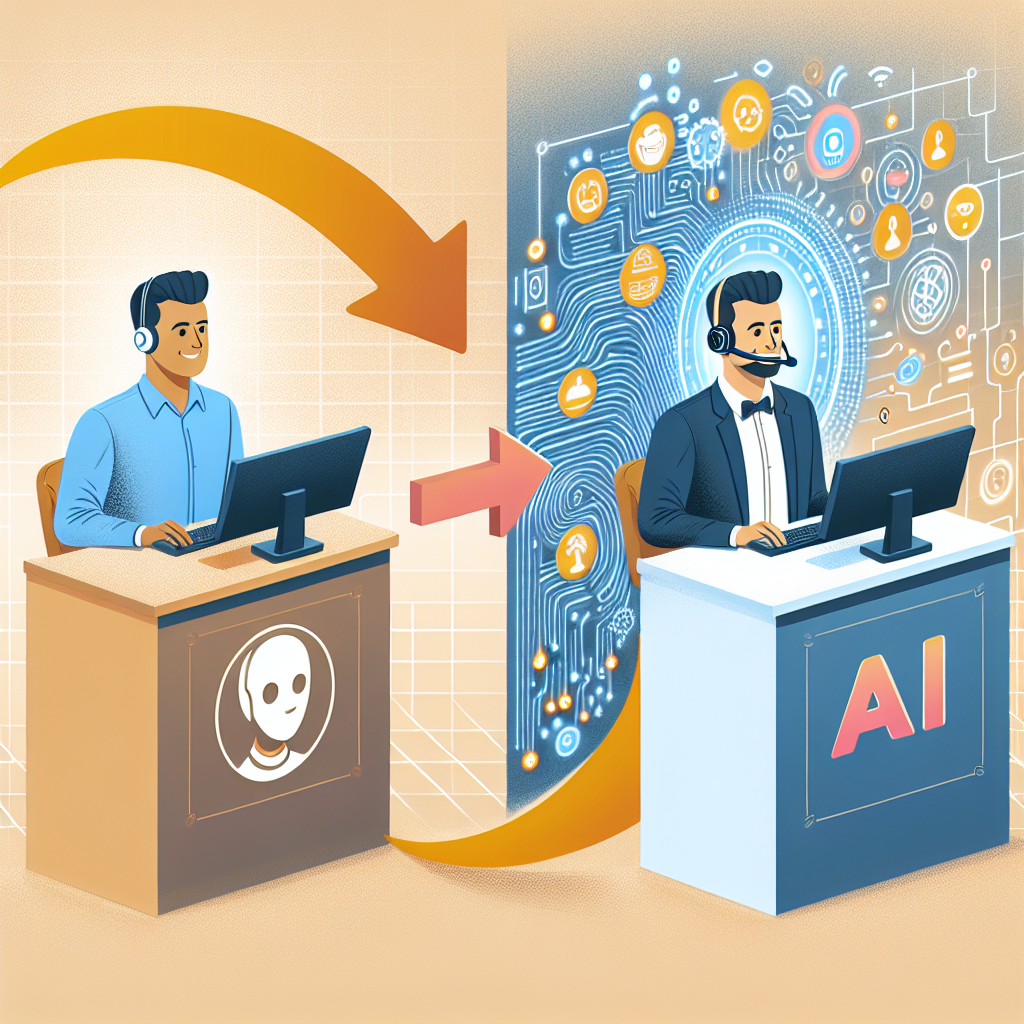Artificial Intelligence (AI) is revolutionizing the way businesses interact with their customers, and nowhere is this more evident than in the realm of customer service. In recent years, AI-powered technologies have become increasingly prevalent in customer service operations, offering companies new opportunities to provide more efficient, personalized, and effective customer support. From chatbots and virtual assistants to predictive analytics and machine learning algorithms, AI is reshaping the customer service landscape in profound ways.
One of the most visible applications of AI in customer service is the use of chatbots and virtual assistants. These intelligent programs are designed to interact with customers in real-time, answering questions, providing information, and even resolving issues without the need for human intervention. Chatbots are particularly well-suited for handling routine inquiries and simple tasks, freeing up human agents to focus on more complex issues. Virtual assistants, on the other hand, are capable of engaging in more sophisticated conversations and providing a higher level of customer support.
AI-powered chatbots and virtual assistants are available 24/7, providing customers with immediate assistance whenever they need it. This round-the-clock availability is a significant advantage for businesses, as it allows them to deliver a superior customer experience and address customer queries in a timely manner. Moreover, these AI-powered tools are capable of processing a vast amount of data in real-time, enabling them to provide personalized recommendations and solutions based on each customer’s specific needs and preferences.
In addition to chatbots and virtual assistants, AI is also being used to improve the efficiency and effectiveness of customer service operations through predictive analytics and machine learning algorithms. By analyzing customer data and historical interactions, AI can identify trends, patterns, and insights that can help businesses anticipate customer needs and proactively address issues before they arise. This predictive approach not only enhances the customer experience but also enables companies to optimize their resources and improve operational efficiency.
Furthermore, AI-powered analytics can help businesses gain a deeper understanding of their customers’ behavior, preferences, and pain points, allowing them to tailor their products and services to meet individual needs. By leveraging AI to analyze customer feedback, social media interactions, and other sources of data, companies can identify areas for improvement and develop targeted strategies to enhance customer satisfaction and loyalty.
Another way AI is reshaping the customer service landscape is through the automation of repetitive tasks and processes. By automating routine activities such as data entry, ticket routing, and issue resolution, AI can help businesses streamline their operations, reduce operational costs, and improve overall productivity. This automation allows human agents to focus on more strategic and value-added tasks, such as handling complex inquiries, building relationships with customers, and driving business growth.
Despite the many benefits of AI in customer service, some concerns have been raised about the potential impact on human jobs. As AI technology continues to evolve and become more sophisticated, there is a fear that automation may lead to job displacement and reduced employment opportunities for human agents. However, many experts argue that AI is not meant to replace humans but rather to augment their capabilities and empower them to deliver a higher level of service. By leveraging AI to automate routine tasks and handle simple inquiries, human agents can focus on more complex and emotionally challenging interactions that require empathy, creativity, and critical thinking.
In conclusion, AI is fundamentally reshaping the customer service landscape by enabling businesses to deliver more efficient, personalized, and effective customer support. From chatbots and virtual assistants to predictive analytics and machine learning algorithms, AI-powered technologies are revolutionizing the way companies interact with their customers and providing new opportunities to enhance the customer experience. By leveraging AI to automate routine tasks, analyze customer data, and provide proactive assistance, businesses can optimize their operations, improve customer satisfaction, and drive business growth in today’s competitive marketplace.
FAQs:
Q: How can AI-powered chatbots and virtual assistants improve the customer experience?
A: AI-powered chatbots and virtual assistants can improve the customer experience by providing immediate assistance, personalized recommendations, and round-the-clock availability. These intelligent programs can handle routine inquiries and simple tasks, freeing up human agents to focus on more complex issues and delivering a superior level of customer service.
Q: What are some of the benefits of using AI in customer service operations?
A: Some of the benefits of using AI in customer service operations include improved efficiency, personalized interactions, proactive assistance, and optimized resource allocation. AI-powered technologies can help businesses streamline their operations, reduce operational costs, and enhance the overall customer experience by leveraging data analytics, automation, and machine learning algorithms.
Q: Are there any concerns about the impact of AI on human jobs in customer service?
A: There are concerns about the potential impact of AI on human jobs in customer service, as automation may lead to job displacement and reduced employment opportunities for human agents. However, many experts argue that AI is not meant to replace humans but rather to augment their capabilities and empower them to deliver a higher level of service by automating routine tasks and handling simple inquiries.
Q: How can businesses leverage AI to enhance customer satisfaction and loyalty?
A: Businesses can leverage AI to enhance customer satisfaction and loyalty by analyzing customer data, identifying trends and patterns, and developing targeted strategies to meet individual needs. By using AI-powered analytics to gain a deeper understanding of their customers’ behavior, preferences, and pain points, companies can tailor their products and services to deliver a more personalized and engaging customer experience.

